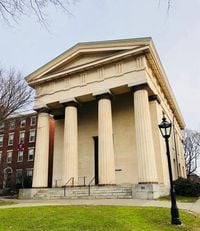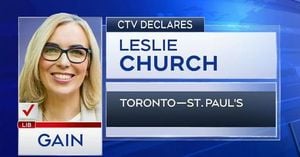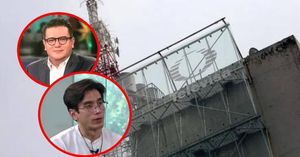In a significant show of unity, more than 100 presidents from American colleges and universities have come together to denounce the Trump administration’s recent actions that they describe as “unprecedented government overreach and political interference” with higher education. This collective statement, released on April 22, 2025, marks a pivotal moment for educational institutions as they rally against what they perceive as an attack on their autonomy.
The letter, which has garnered attention from various media outlets, highlights the administration's unilateral decision to freeze federal funds and slash billions in grants to universities across the country. This move has raised alarms among educators who argue that such actions threaten the very foundation of academic freedom and the integrity of higher education.
Among the notable signatories is Christina Paxson, the president of Brown University, who has voiced her concerns alongside her peers. However, not all local institutions joined the cause; presidents from the University of Rhode Island, Providence College, and the Rhode Island School of Design (RISD) opted not to sign the letter, indicating a divide in the higher education community regarding the administration's policies.
In their statement, the university leaders emphasized the importance of maintaining academic independence, stating, "As leaders of America’s colleges, universities, and scholarly societies, we speak with one voice against the unprecedented government overreach and political interference now endangering American higher education." They expressed their willingness to engage in constructive reform but firmly opposed any undue government intrusion into the lives of students and faculty.
The letter articulates a vision for higher education that respects the diversity of institutions, from research universities to community colleges, and underscores the shared commitment to fostering open inquiry. The signatories argue that American colleges and universities play a crucial role in nurturing creativity, innovation, and an educated citizenry necessary for sustaining democracy.
Furthermore, the presidents pointed out the economic and cultural contributions of higher education institutions, highlighting their role as engines of opportunity and mobility. They asserted that the price of abridging the defining freedoms of American higher education would ultimately be borne by students and society at large.
In a related development, over 100 rabbis and cantors in the Chicago area have also signed a letter opposing the Trump administration's recent funding cuts and arrests occurring on college campuses. This letter, published as an advertisement in the Chicago Tribune on the same day, aligns with a growing movement of American Jewish opposition to the administration's campus policies.
The Jewish leaders' letter critiques the administration's actions, which are framed as efforts to combat antisemitism but are viewed by many as detrimental to civil liberties. The letter states, "Many of these actions have been presented as in defense of the Jewish community. Yet in truth, Jewish fear is being used as a fig leaf for an anti-democratic agenda of mass deportations, civil rights rollbacks, and attacks on higher education." This sentiment reflects a broader concern among various communities regarding the implications of the administration's approach to education and civil rights.
Notable signatories of the Chicago letter include Josh Feigelson, the former campus rabbi at Northwestern University, and Andrea London, the senior rabbi of Beth Emet. They emphasize that the administration's policies do not enhance safety for the Jewish community but rather exploit fears to justify actions that undermine democratic principles.
Since early March 2025, campuses across the nation have experienced funding freezes, including Northwestern University, and have seen a series of detainments of pro-Palestinian student protesters. The administration's recent freeze of $2.2 billion in funding to Harvard University, coupled with demands for policy changes concerning allegations of antisemitism, has further intensified the backlash from the academic community.
Harvard has responded to these funding cuts by filing a lawsuit against the Trump administration, asserting its commitment to maintaining its academic standards and protecting its students' rights. This legal battle underscores the ongoing tensions between educational institutions and the federal government.
The convergence of these two letters—one from college presidents and the other from Jewish leaders—illustrates the growing discontent with the Trump administration's approach to higher education and civil liberties. As these institutions and communities stand united in their opposition, they highlight the critical need for dialogue and reform that respects academic independence and civil rights.
In conclusion, the collective voices of over 100 university presidents and Chicago-area rabbis reflect a mounting resistance against what they view as governmental overreach into the realms of education and civil rights. As the situation continues to evolve, the implications for higher education and civil liberties remain a focal point of concern for many across the nation.




